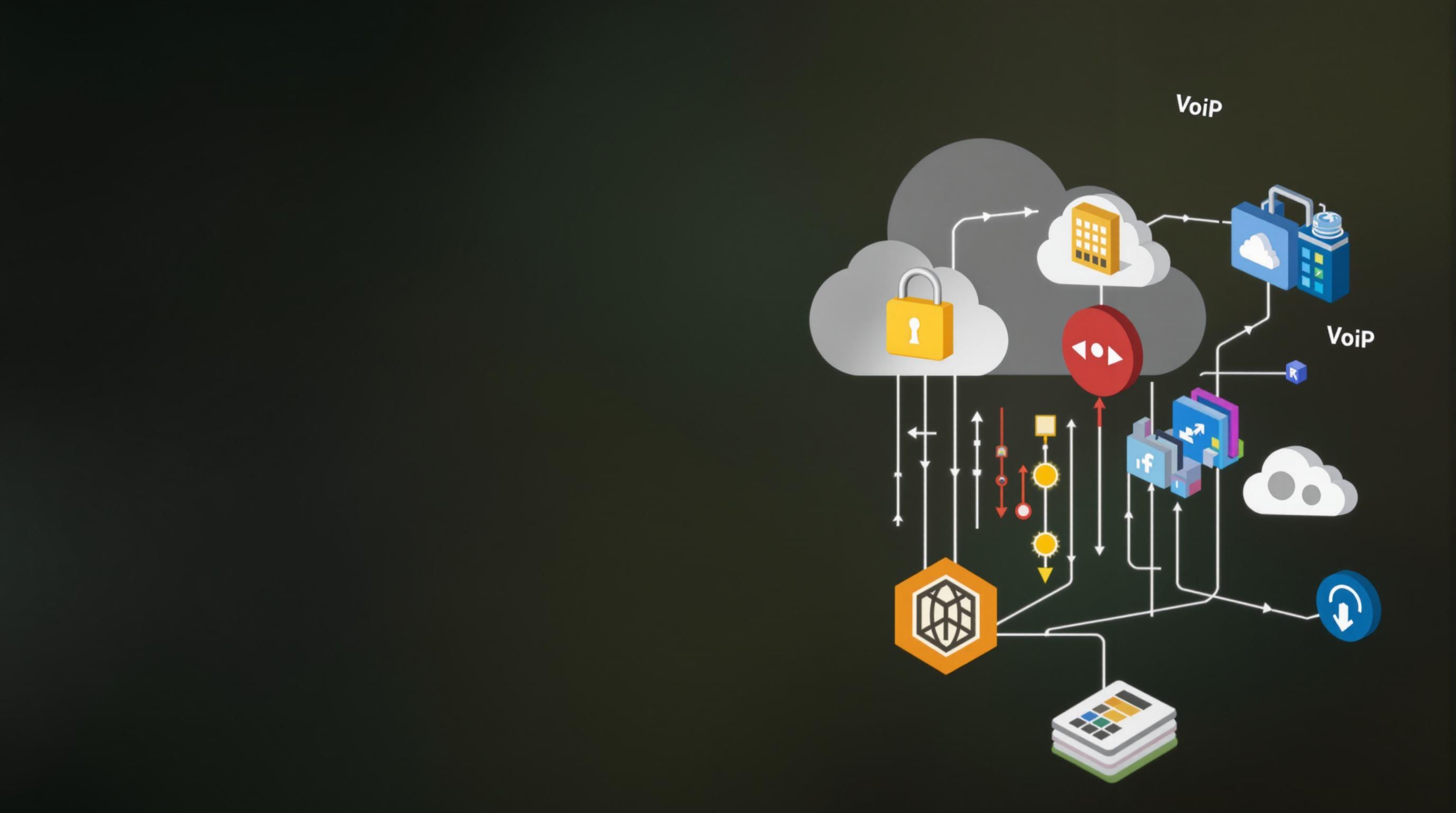Related Articles
- Uncharted Frequencies: The Surprising Role of Subcultures in Shaping Global Digital Landscapes
- Wired Whims: The Unexpected Role of Niche Online Communities in Shaping Global Digital Trends
- Fragmented Signals: Exploring the Shadows of Digital Divide in Emerging Economies and Its Impact on Global Unity
- Decoding the Invisible: How Microbial Communication Could Revolutionize Digital Interactions
- Cryptic Channels: How Encrypted Messaging Platforms Are Reshaping Trust and Transparency in Online Interactions
- Mysterious Modes: The Rise of Cryptographic Channels in Secret Online Dialogues and Their Hidden Impacts
10 Fascinating Impacts of VoIP and Cloud Solutions on Enhancing Cybersecurity Frameworks for Modern Enterprises
10 Fascinating Impacts of VoIP and Cloud Solutions on Enhancing Cybersecurity Frameworks for Modern Enterprises
10 Fascinating Impacts of VoIP and Cloud Solutions on Enhancing Cybersecurity Frameworks for Modern Enterprises
1. Improved Accessibility and Scalability
VoIP and cloud solutions provide enterprises with enhanced accessibility to their communications infrastructure. This means team members can securely access communication tools from anywhere in the world, promoting a more dynamic and remote-friendly work environment. With VoIP, employees can efficiently connect through various devices such as smartphones, tablets, or laptops, without compromising security.
The scalability of cloud solutions is particularly beneficial for growing enterprises. Businesses can easily adjust their resources according to their needs, scaling up or down without major investments in IT infrastructure. This flexibility allows organizations to adapt rapidly to market changes while ensuring that their cybersecurity measures can also scale appropriately, limiting exposure vulnerabilities.
Furthermore, cloud solutions often come with built-in security features that can be customized according to enterprise needs. This means organizations can enhance their cybersecurity frameworks without extensive expenses on hardware or additional personnel, empowering them to focus on core operations while maintaining robust security protocols.
2. Enhanced Collaboration with Security Controls
VoIP and cloud solutions transform how teams collaborate. They facilitate seamless communication, whether through voice calls, video meetings, or instant messaging. Moreover, the security of these tools is paramount, with numerous platforms incorporating encryption and secure authentication methods to protect sensitive data during collaboration.
Advanced features like role-based access controls allow organizations to fine-tune who can access what information, ensuring that sensitive communications remain confidential. This helps significantly in protecting company data from insider threats and external attacks alike.
Additionally, the integration of threat detection systems into collaboration tools can proactively identify potential security breaches. This means organizations can respond swiftly, addressing vulnerabilities before they escalate and keeping collaboration secure.
3. Cost-Effective Security Solutions
Implementing traditional cybersecurity measures often involves significant financial investment, primarily in hardware and infrastructure. In contrast, VoIP and cloud solutions provide a more cost-effective means of securing communications. By adopting cloud-based VoIP services, enterprises often observe a reduction in hardware costs, leading to the reallocation of financial resources towards cybersecurity enhancements.
Moreover, cloud service providers typically offer robust cybersecurity features as part of their subscription plans. This allows enterprises to access cutting-edge security updates without additional costs associated with purchasing or installing new technologies.
Organizations can also leverage the expertise of cloud vendors, who continually monitor and maintain heightened security protocols, diminishing the burden on internal IT teams. By relying on third-party vendors for security management, enterprises can better allocate their resources, focusing on core business functions instead.
4. Unified Security Protocols
VoIP and cloud solutions enable organizations to unify their security protocols across all communication channels. Traditional systems often operate in silos, leading to gaps in security coverage. However, cloud-based platforms can integrate multiple channels—voice, video, and chat—into a single framework, streamlining security management.
This unification allows for more comprehensive monitoring and response capabilities. Teams can identify and react to threats across all platforms, ensuring a consistent security posture without the fragmentation that comes with disparate systems.
Furthermore, having a unified protocol simplifies employee training. Staff can become proficient in a single set of security practices, reducing the likelihood of human error that often leads to breaches, leading to an overall culture of heightened awareness and proactive security measures.
5. Robust Disaster Recovery Capabilities
Cloud solutions inherently offer robust disaster recovery capabilities that enhance cybersecurity. In the event of a cyber incident, having data securely stored in the cloud ensures that critical communications and files are preserved. Most reputable cloud providers include backup systems and recovery plans in their services, providing businesses with peace of mind.
VoIP systems hosted in the cloud enable quick recovery from disruptions, as communication tools can be rapidly restored, ensuring that organizations can maintain operational continuity. This capability is crucial as sophisticated cyber threats continue to evolve and target business infrastructures.
The ability to restore data efficiently and effectively not only minimizes downtime but also helps organizations recover from ransomware attacks and other security breaches, allowing them to quickly regain control over their operations and communications.
6. Increased Threat Intelligence
The integration of VoIP and cloud solutions within an enterprise enhances its threat intelligence capabilities. Many cloud service providers employ artificial intelligence and machine learning technologies that constantly analyze security patterns and identify potential threats. This increased visibility allows organizations to stay ahead of potential attacks.
By having access to aggregated data from numerous sources, businesses can gain insights into emerging threats and environment-specific vulnerabilities. This knowledge enables organizations to proactively adapt their cybersecurity strategies while keeping their communication channels secure.
Additionally, many providers offer reporting and analytics tools that can highlight unusual activity, enabling real-time threat assessments and immediate actions, thus bolstering an enterprise's overall security stance.
7. Improved Regulatory Compliance
Many industries are subject to stringent regulatory requirements regarding data security and communications. VoIP and cloud solutions help organizations bolster their compliance frameworks by incorporating various security and privacy protocols into their services. This built-in compliance allows businesses to navigate the complexities of regulatory requirements more efficiently.
Moreover, with advanced logging and monitoring features typical of cloud services, organizations can ensure they maintain accurate records for audit purposes and demonstrate compliance during inspections. Such transparency is critical for maintaining trust with customers and regulators alike.
Cloud solution providers often stay ahead of regulatory changes, ensuring that their services are compliant with the latest legal standards. This proactive management of compliance frees enterprises to focus on strategic initiatives instead of worrying about meeting varied compliance demands.
8. Enhanced Mobile Security
As businesses increasingly embrace mobile workforces, security concerns regarding mobile communications have surged. VoIP and cloud solutions offer robust encryption and authentication mechanisms that safeguard mobile communications, ensuring that sensitive data remains protected when accessed on the go.
Mobility enables flexibility but also increases the risk of cybersecurity threats. Cloud solutions often incorporate mobile device management features that enforce security policies across all employee devices, adding another layer of protection against unauthorized access and data leaks.
The combination of VoIP and cloud services helps ensure that mobile employees can communicate securely, regardless of their location, without compromising enterprise security policies. By prioritizing mobile security, organizations can fully leverage the advantages of a mobile workforce while maintaining a secure communication environment.
9. Advanced Authentication Methods
Modern VoIP and cloud solutions are incorporating multiple advanced authentication methods, enhancing the overall security of communication systems. Multi-factor authentication (MFA) has become a staple in securing user access to sensitive information. Organizations can implement MFA protocols to ensure that only authorized personnel can access specific communication channels.
This enhances security by adding extra layers of verification beyond just passwords. By utilizing tools like biometric verification or one-time codes sent via SMS, enterprises significantly mitigate the risks associated with credential theft and unauthorized access.
Advanced authentication methods cater to the growing need for ironclad security in today's cyber landscape, instilling greater confidence among enterprises in their ability to safeguard communications. As cyber threats evolve, these advanced approaches will be pivotal in maintaining secure collaboration.
10. Continuous Security Updates
One of the most compelling benefits of cloud-based VoIP solutions is the provision of continuous security updates. Cyber threats change rapidly, and by using cloud solutions, organizations receive automatic security updates without the hassle of manual installation or maintenance.
This ensures that enterprises are always protected against the latest vulnerabilities and threats, maintaining their security posture with minimal effort. Rather than facing long periods without critical updates, organizations can focus on innovation and growth while their systems remain secure.
This proactive approach helps mitigate risks associated with outdated software and vulnerabilities. In a world where cyber threats are increasingly sophisticated, leveraging continuous updates becomes essential for modern enterprises looking to secure their communication infrastructures effectively.




